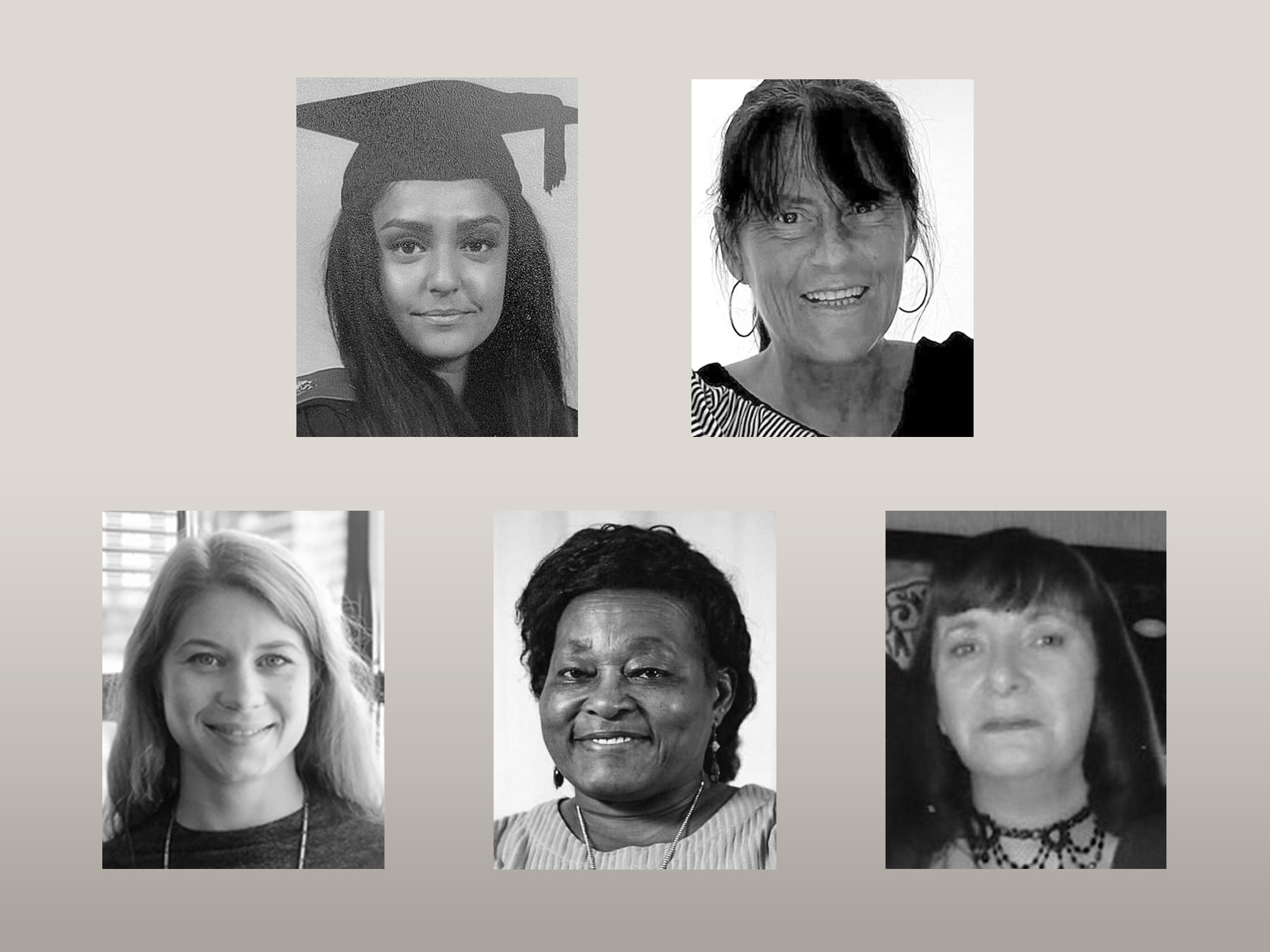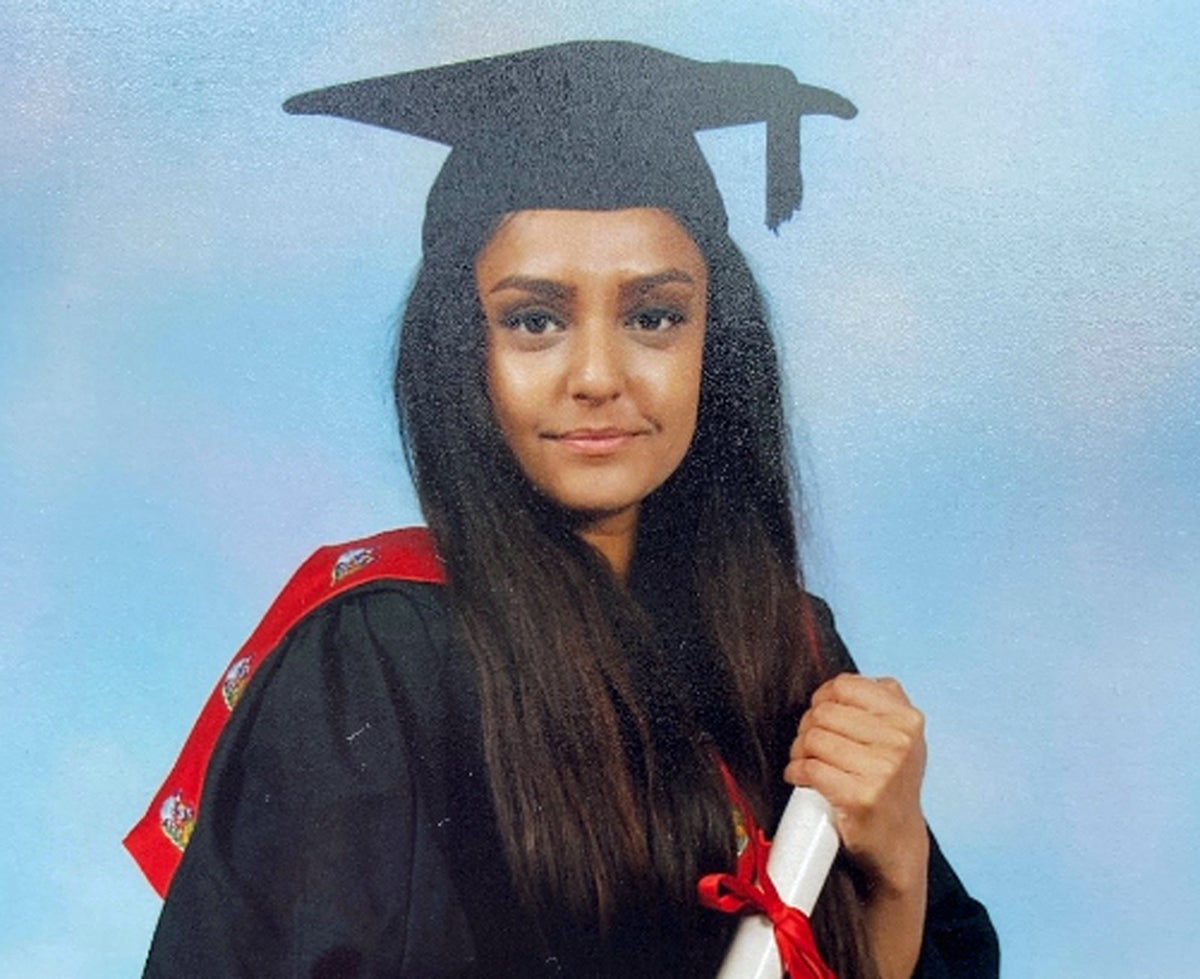At least 125 women killed in UK since Sarah Everard was kidnapped and murdered
Exclusive: Campaigner warns ‘things haven’t changed’ one year on from murder that sparked nationwide outrage

Your support helps us to tell the story
From reproductive rights to climate change to Big Tech, The Independent is on the ground when the story is developing. Whether it's investigating the financials of Elon Musk's pro-Trump PAC or producing our latest documentary, 'The A Word', which shines a light on the American women fighting for reproductive rights, we know how important it is to parse out the facts from the messaging.
At such a critical moment in US history, we need reporters on the ground. Your donation allows us to keep sending journalists to speak to both sides of the story.
The Independent is trusted by Americans across the entire political spectrum. And unlike many other quality news outlets, we choose not to lock Americans out of our reporting and analysis with paywalls. We believe quality journalism should be available to everyone, paid for by those who can afford it.
Your support makes all the difference.At least 125 women have been killed in the UK in the year following the kidnap and murder of Sarah Everard, according to figures seen exclusively by The Independent.
Campaigning website the Counting Dead Women project, which records the names of women killed by men or where a man is the principle suspect, said that its analysis of police data, court records and media reports showed “things haven’t changed” since the death of Ms Everard, who it later emerged had been kidnapped and murdered by Metropolitan Police officer Wayne Couzens.
Karen Ingala Smith, who founded the project 10 years ago, said that cases such as those of older or ethnic minority women killed by men in the past year had not attracted the same level of attention as that of Ms Everard, who went missing aged 33 while walking home in Clapham, southwest London, on 3 March 2021.
“I don’t want to demean what happened to Sarah Everard, but she has been elevated more than other victims,” said Ms Ingala Smith, who also runs the Femicide Census – a record of fatal incidents of male violence across the UK.
“It is the young, pretty professionals who are killed by a stranger who get the attention from the media,” she added.

“The recent Femicide Census found that during the last decade a woman was killed by a man every three days, while a woman is killed by a former or current partner every four days in the UK,” she continued.
“When people say to me things have changed since Sarah Everard was killed, well, they haven’t.”
Ms Ingala Smith said the government “makes noises” about prioritising tackling male violence against women, but this is not followed by “concrete actions”.
Labour said the figures proved that too little progress was being made in tackling male violence, and called on the government to do more to crack down on violent repeat offenders.
Jess Phillips, the shadow minister for domestic violence and safeguarding, said: “In the year since Sarah Everard was killed, more women have been killed at the hands of men than in the year before. We should know all of their names. A year on since the public demanded better, we have seen more women killed, rape charging falling, women making it clear that they do not feel safe.
“Too little progress has been made, and still there are no answers from the government about how they will manage, monitor and prevent the most violent repeat offenders. It is not good enough.”
Ms Everard’s murder fuelled anger at the government and police for not doing enough to address violence against women and girls, with the police facing sustained criticism over the failure to properly tackle these issues within their own ranks.
Couzens was reportedly nicknamed “the rapist” by colleagues because he made female officers feel uncomfortable. He was also accused of indecent exposure on several occasions before killing his victim.

Much like that of Ms Everard, the case of Sabina Nessa, a 28-year-old primary school teacher, drew significant attention last year. Koci Selamaj, a garage worker from Eastbourne, a seaside town in East Sussex, pleaded guilty to her murder at the end of last month.
However, other cases did not attract the same level of publicity.
Phyllis Grant, 76, was killed in a violent attack by her grandson, Donovan Miller, at her home in Plaistow, east London, in March 2021. Donovan admitted her manslaughter last month.
Carol Hart, a 77-year-old from Devon, was murdered by her carer, Michael Robinson, after she discovered he was stealing money from her. Robinson was jailed for a minimum of 30 years in July.
Maria Rawlings, a 45-year-old mother of two, was found dead in a hedgerow in Romford, east London, in May last year. Valentin Lazar, 21, pleaded guilty to killing her. He was imprisoned for life for his “savage and sustained” attack.

Commenting on the new figures, Ruth Davison, chief executive of Refuge, the UK’s largest provider of shelters for domestic abuse victims, said: “Women’s lives are being lost to male violence even while violence against women and girls has never been higher on the public or political agenda. Enough is enough. Violence against women and girls is at epidemic proportions.”
One in four women will suffer domestic abuse at some point during their lives – with domestic abuse having a higher rate of repeat victimisation than any other crime.
The names of most of the women on this list aren’t well publicised, and their deaths are treated as a deeply upsetting but unavoidable part of life
Rebecca Gill, executive director of Rosa, a charity that funds grassroots women’s organisations, added: “These latest femicide figures are both appalling and, sadly, unsurprising.
“While 125 women have lost their lives in the last year, thousands and thousands of women and girls experience male violence in all its forms every day of their lives.”
Deniz Ugur, deputy director of the End Violence Against Women coalition, told The Independent: “Every single woman who dies at the hands of men deserves to be grieved, to have an outpouring of rage and grief, to see action taken to prevent any other woman from being murdered.
“But the names of most of the women on this list aren’t well publicised, and their deaths are treated as a deeply upsetting but unavoidable part of life. We will not accept this. Violence against women and girls is not inevitable.”
The Home Office was contacted for comment.


Join our commenting forum
Join thought-provoking conversations, follow other Independent readers and see their replies
Comments